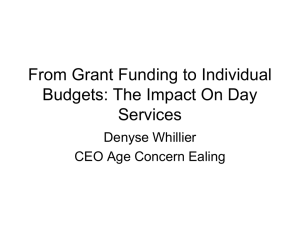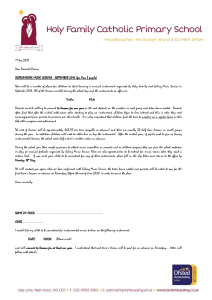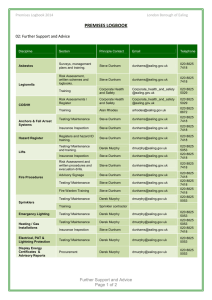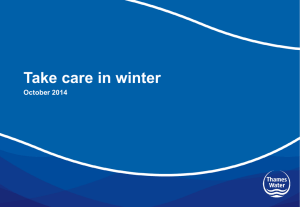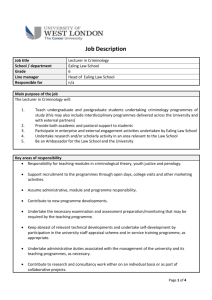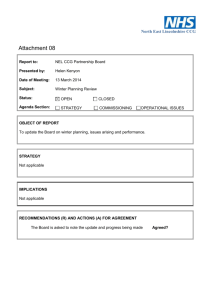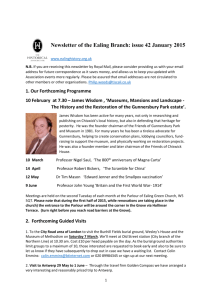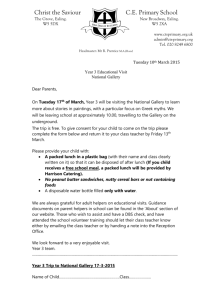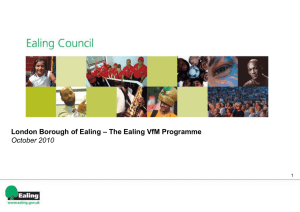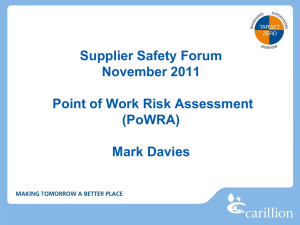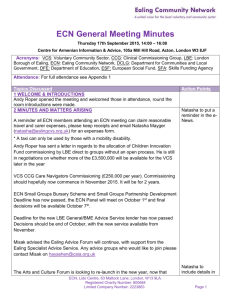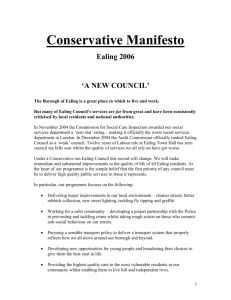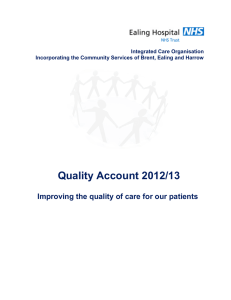cold weather guidance 2016
advertisement
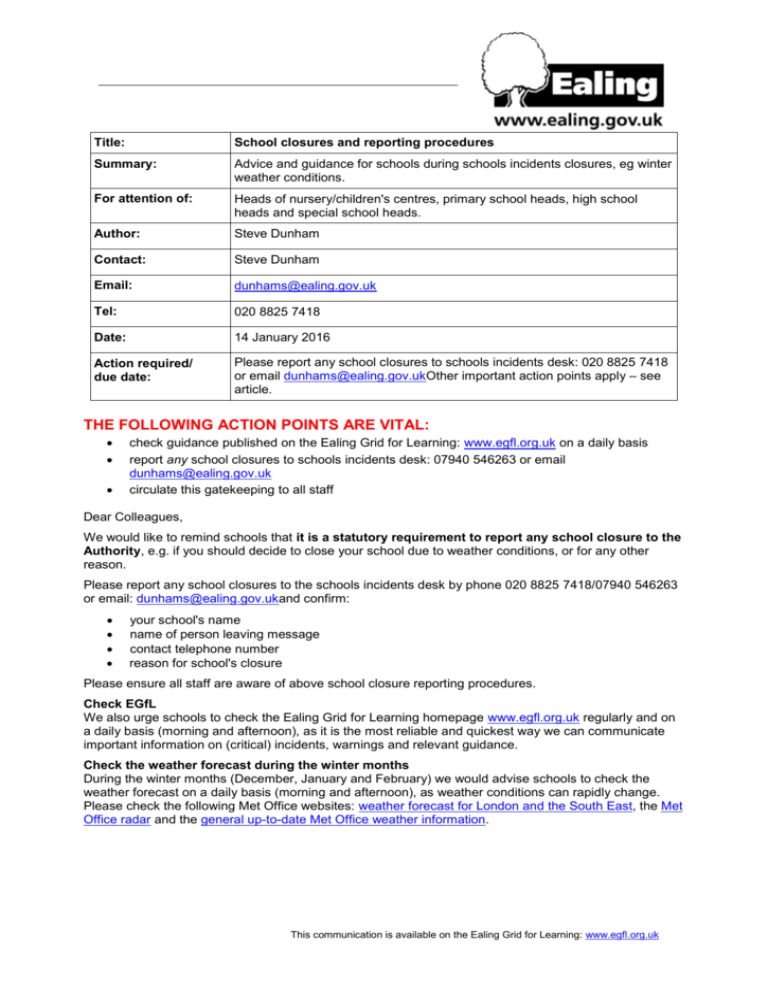
Title: School closures and reporting procedures Summary: Advice and guidance for schools during schools incidents closures, eg winter weather conditions. For attention of: Heads of nursery/children's centres, primary school heads, high school heads and special school heads. Author: Steve Dunham Contact: Steve Dunham Email: dunhams@ealing.gov.uk Tel: 020 8825 7418 Date: 14 January 2016 Action required/ due date: Please report any school closures to schools incidents desk: 020 8825 7418 or email dunhams@ealing.gov.ukOther important action points apply – see article. THE FOLLOWING ACTION POINTS ARE VITAL: check guidance published on the Ealing Grid for Learning: www.egfl.org.uk on a daily basis report any school closures to schools incidents desk: 07940 546263 or email dunhams@ealing.gov.uk circulate this gatekeeping to all staff Dear Colleagues, We would like to remind schools that it is a statutory requirement to report any school closure to the Authority, e.g. if you should decide to close your school due to weather conditions, or for any other reason. Please report any school closures to the schools incidents desk by phone 020 8825 7418/07940 546263 or email: dunhams@ealing.gov.ukand confirm: your school's name name of person leaving message contact telephone number reason for school's closure Please ensure all staff are aware of above school closure reporting procedures. Check EGfL We also urge schools to check the Ealing Grid for Learning homepage www.egfl.org.uk regularly and on a daily basis (morning and afternoon), as it is the most reliable and quickest way we can communicate important information on (critical) incidents, warnings and relevant guidance. Check the weather forecast during the winter months During the winter months (December, January and February) we would advise schools to check the weather forecast on a daily basis (morning and afternoon), as weather conditions can rapidly change. Please check the following Met Office websites: weather forecast for London and the South East, the Met Office radar and the general up-to-date Met Office weather information. This communication is available on the Ealing Grid for Learning: www.egfl.org.uk Practical guidance during the winter months I am aware that schools under their own leadership will be already prepared or preparing for the winter months. However, I would encourage schools to consider the following points: Ensure that an adequate supply of salt and sand is kept on site. Sand and salt mixtures should be scattered on snow, sleet or ice, on those areas that are regularly used by pupils/students, staff and visitors. When the weather improves the sand should be swept up and doormats should be allowed to dry. Schools may wish to consider restricting access to essential areas only, during severe weather conditions. Temporary signage would be required to ensure that the school restrictions are maintained. Inside the school premises, areas that are wet and slippery should be mopped regularly. Particular attention should be paid to main entrances and areas where the pupils/students enter the building. Each school are advised to have a contingency plan to deal with severe weather conditions. These may include: Additional bottled drinking water (in case of drinking water pipes freezing). Ascertain the limits of the schools electrical supply, which will determine the limit of additional electrical equipment that can be safely, used i.e. heaters, lighting etc. In the event that the kitchen cannot be used, consideration should be given to ensure that there are facilities to provide hot drinks and food. Identify locations of the stop taps or switches for the isolation of all the buildings main services. Contact the school Support Surveyor to assist in your preparations. Procedures for closing the school and informing parents and pupils/students should there be a need to do so. Policy/procedures to ensure that the welfare and health of the pupils/students, staff and visitors is not compromised. (i.e. schools may wish to consider sending a letter to all parents advising them that it would be best for the child if they did not attend school when afflicted with flu). Provisions for staff shortages (i.e. due to travel restrictions). Emergency communications with parents. Additional funding/budgeting (i.e. for increased fuel or electricity supplies).
